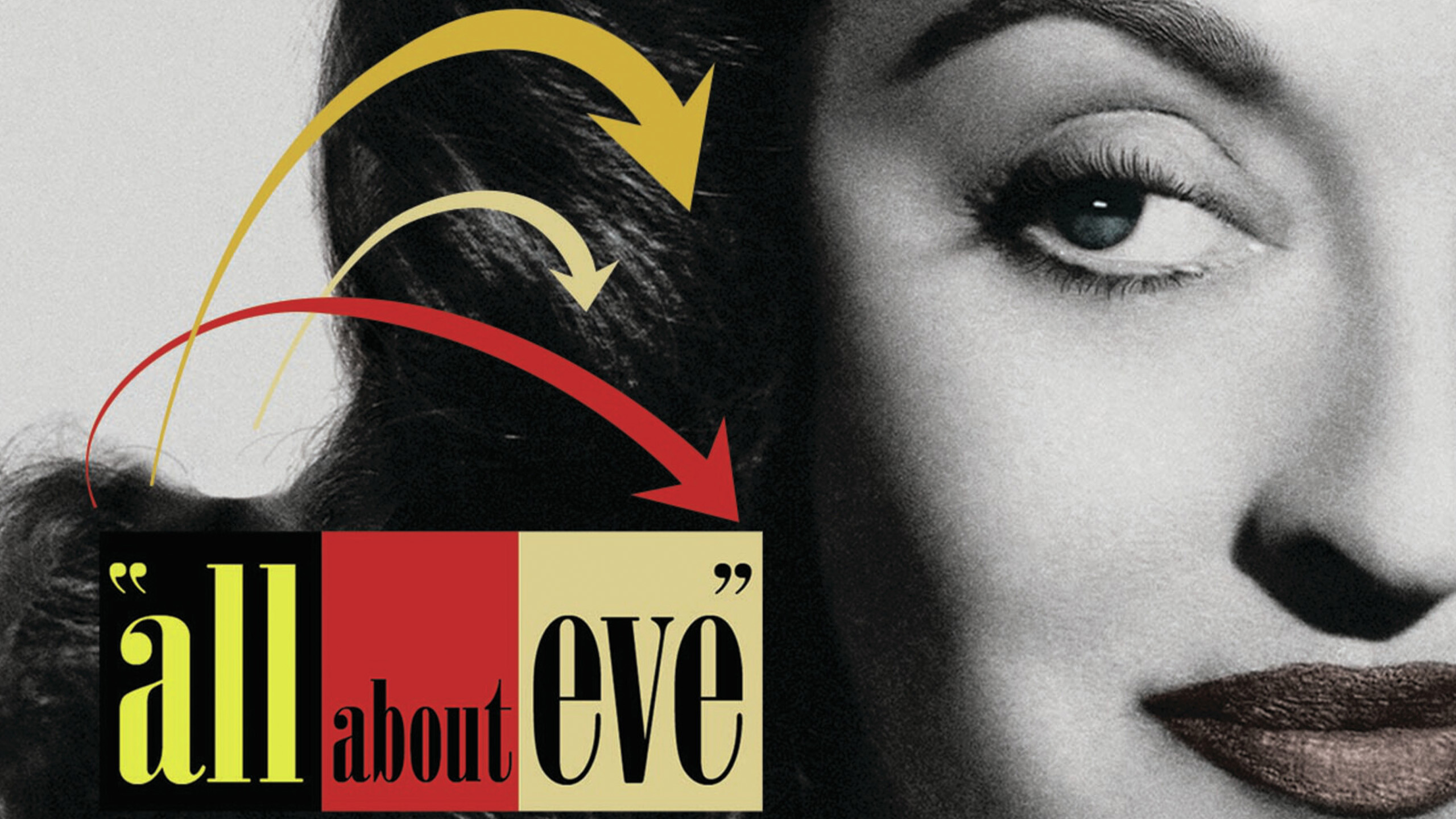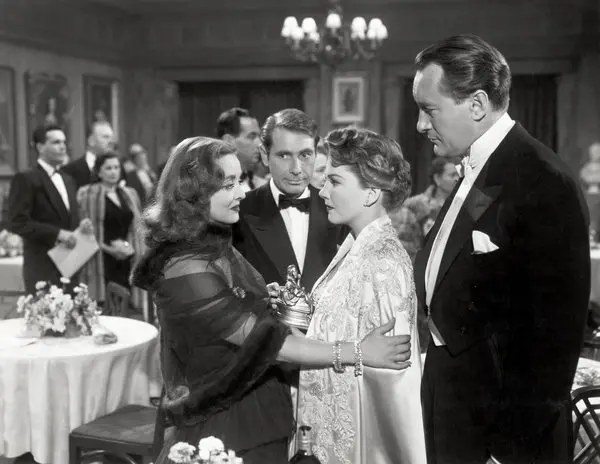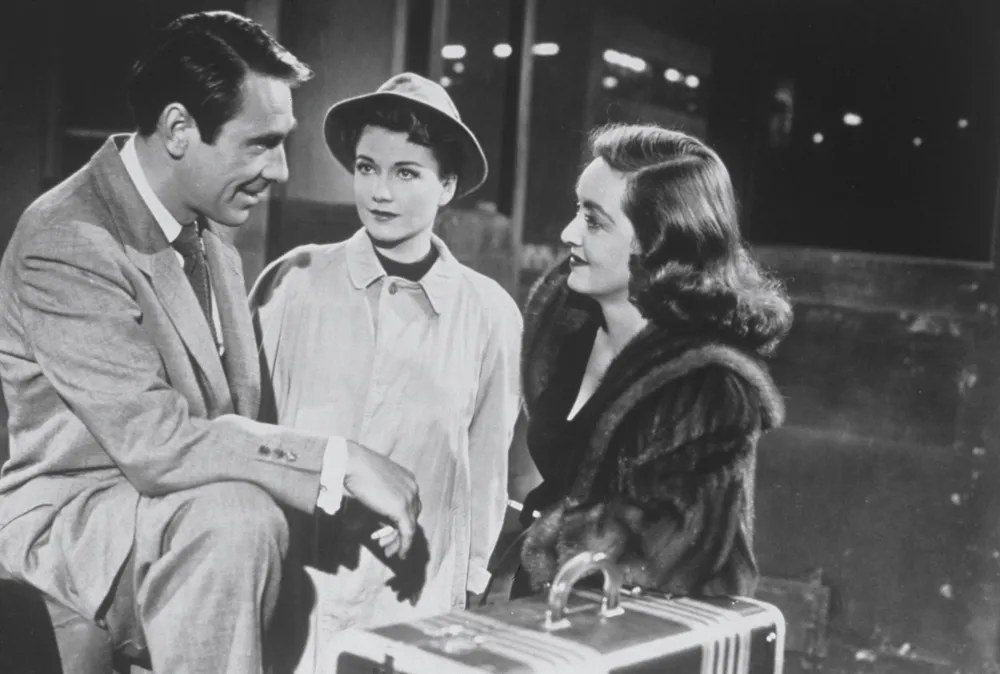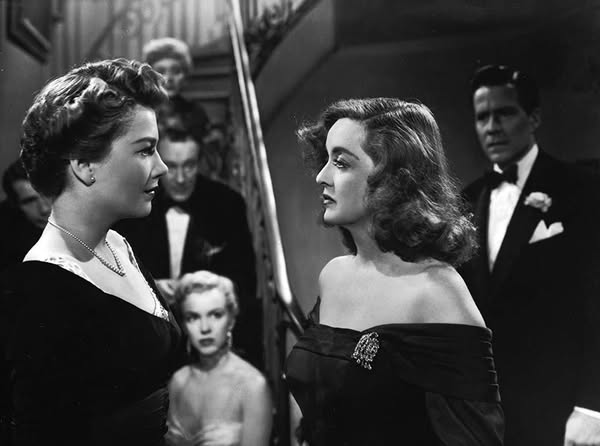All About Eve (1950)

All About Eve (1950) is an American drama film written and directed by Joseph L. Mankiewicz. Adapted from the short story The Wisdom of Eve by Mary Orr, the film is a sharp and insightful exploration of ambition, jealousy, and the cutthroat nature of the entertainment industry. Featuring a star-studded cast led by Bette Davis as Margo Channing, an aging Broadway star, the movie has become a classic in American cinema, receiving critical acclaim for its powerful performances and intelligent screenplay.
The film revolves around Margo Channing, a well-established Broadway star who is struggling with her age and the arrival of a new, younger actress named Eve Harrington (played by Anne Baxter). Eve, initially appearing as a sweet and devoted fan of Margo, gradually manipulates her way into the theater world, positioning herself as Margo’s understudy. As the story unfolds, Eve’s true intentions are revealed—her ambition to replace Margo and take over her career. The film explores the complex relationships between these two women, as well as the people caught in the middle, including Margo’s boyfriend Bill Sampson and her close friend and playwright Lloyd Richards.
The central character of All About Eve is Margo Channing, portrayed by Bette Davis in one of her most iconic roles. Margo is a talented, confident, but vulnerable woman who is confronted with the reality of her fading youth and relevance in a youth-obsessed industry. Anne Baxter’s portrayal of Eve Harrington is equally compelling, as she starts off as a seemingly innocent fan but slowly reveals herself as a manipulative and calculating figure. The film also features supporting characters who contribute to the tension and drama, such as George Sanders as the sardonic theater critic Addison DeWitt, who plays a pivotal role in the unfolding of the plot.

All About Eve addresses themes of ambition, betrayal, and the dangers of blind ambition. The film delves into the harsh realities of the entertainment industry, where youth and beauty are often prioritized over experience and talent. Through the character of Eve, the film explores how far some people are willing to go to climb the social ladder, even at the expense of others. Additionally, the film highlights the complicated nature of female rivalry, particularly in an environment where success is often seen as a zero-sum game. At its core, the movie is a commentary on the price of fame and the lengths to which people will go to achieve it.

Joseph L. Mankiewicz’s direction in All About Eve is sharp and meticulous, creating a film that is both engaging and thought-provoking. The screenplay is full of clever dialogue and biting wit, with many memorable lines that have become iconic in film history. The cinematography by Milton R. Krasner uses strong contrasts of light and shadow to reflect the moral ambiguity of the characters, particularly the contrast between the glamorous exterior of the theater world and the darker undercurrents of manipulation and deceit. The pacing of the film is also effective, building tension gradually as Eve’s true nature becomes more apparent.

In conclusion, All About Eve is a brilliant and timeless film that offers a fascinating exploration of the complexities of fame, ambition, and human relationships. The exceptional performances by Bette Davis and Anne Baxter, along with the sharp screenplay and direction by Joseph L. Mankiewicz, make this film an enduring classic. The movie’s examination of the ruthless nature of the entertainment industry and the price of success continues to resonate with audiences even today. All About Eve is a masterful portrayal of the power dynamics between women, the cost of ambition, and the fragility of fame, making it a must-see for film lovers and anyone interested in timeless cinematic storytelling.











